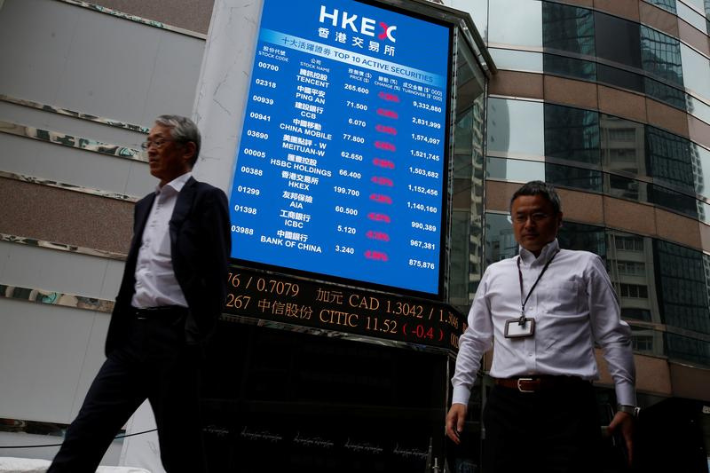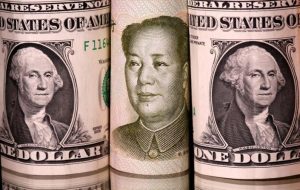China’s plan to restrict or slow down mainland initial public offerings (IPO) is worrying the country’s bankers and lawyers who warn that instead of boosting the secondary market, as intended, the move could further weigh on an already frail economy.
The China Securities Regulatory Commission (CSRC) announced on Sunday it would start a phased restriction on IPOs, to promote “dynamic equilibrium” between investment and financing. It didn’t say how long the curbs will last.
“Slowing the pace of IPOs will have little impact on the equity markets but will further dampen access to capital for the private sector at a time when the economy sorely needs a boost,” Orient Capital Research managing director Andrew Collier warned.
Also on AF: Foreign Investors ‘Won’t Return Till China Starts Spending Again’
The surprise move, announced as part of a slew of measures to bolster the stock market and investor sentiment, threatens to fade out one of the few bright spots in the Chinese financial sector this year.
Chinese firms have launched $39.7 billion worth of IPOs so far this year, according to Dealogic data. While the figure was down from $68.2 billion at the same time last year, it was three times the $13.1-billion raised in the United States.
The fundraising came as domestic IPO-aspirants chose home bourses over offshore stock exchanges, amid geopolitical tensions and tightened regulatory curbs.
And at least another 650 companies are currently waiting to list on the Shanghai and Shenzhen bourses, exchange data shows.
“I think many IPO candidates would give up their IPO plans,” a Shanghai-based investment banker said.
“It’s going back to the old, myopic model of controlling IPOs to lift stock prices.”
Private sector’s fund crunch
China’s decision to slow IPOs comes as bond markets are difficult and expensive to tap for Chinese private companies due to the spillover effect of a deepening property sector debt crisis.
This, coupled with diminishing appetite for China investments by private equity firms, will leave fewer avenues for companies to tap for growth capital and will weigh on their near-term business plans, bankers and analysts said.
Companies in the pipeline for a market debut on the mainland include robot maker JAKA Robotics Co, semiconductor firm Shenzhen Chipsbank Technologies Co and Swiss agrichemicals and seeds group Syngenta, which is eyeing a $9 billion IPO this year.
With China tightening scrutiny of companies eyeing offshore IPOs, Hong Kong grappling with a liquidity shortage, and Sino-US tensions clouding New York listing hopes, the latest move will leave Chinese firms with very few equity fundraising options.
Against earlier IPO reforms
Bankers, who now expect tougher IPO vetting and a lengthier registration process, say Beijing’s move goes against the fundraising reforms introduced earlier this year.
The country sought to remove government intervention and introduce a US-style registration-based IPO mechanism, among other things, in February, as it sought to revive a Covid-ravaged economy.
The move to slow down IPOs “shows China’s registration-based IPO system is not genuine,” the Shanghai-based banker said.
Even before the latest decision, bankers and lawyers were already grappling with tougher-than-normal queries from stock exchanges over companies’ fundraising plans and refinancing projects.
“Fundraising via equity is a good thing, better for many companies as they can’t raise debt, so what purpose does this serve?” Fraser Howie, author of several books on China’s financial system, said.
“These tweaks address symptoms such as the weak stock market, but do nothing to sort the problem, which is the economy.”
- Reuters, with additional editing by Vishakha Saxena
Also read:
China Slashes Stamp Duty on Stock Trades Starting Monday
China Offshore Listings Backlog Blamed on New Scrutiny Rules
Move to Tone Down ‘China Risk’ Warnings in IPOs May Spur SEC Queries
China IPOs Plunge in First Half Amid Slowdown, Tighter Scrutiny
Chinese Investors Ploughing Into Foreign Assets Via ETFs, QDII Scheme
























